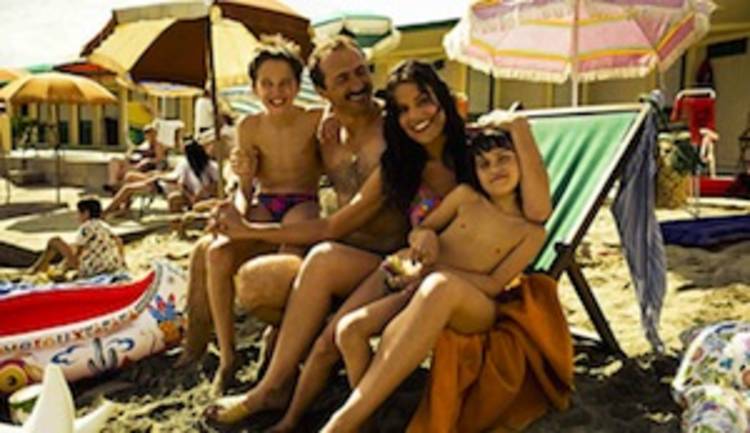


“The First Beautiful Thing” is the English title for “La prima cosa bella”, by the director from Livorno Paolo Virzì.
The film was screened at the Angelika Film Center [2], in Italian with English subtitles (dubbing movies is now standard only in Italy and a handful of other countries). So without any filters, the New York audience was able to leap into Italian life from the 1970s to today: images of hot summers in the city between lights and neighborhood festivals, scenes from Italian classic films and melodic songs of those years, such as “La prima cosa bella” by Nicola di Bari that gave the title to the film. The story takes place in Livorno, the director’s home town, and describes a provincial Italy changing slowly thanks to the economic boom, but shedding with difficulties its cultural traditions: a woman too beautiful would constitute a threat to her husband because of the talk of the town; a woman who left her home would shame her family; a woman working for the movies would be like selling her body.
The story follows the beautiful Anna, a mother who leaves home with her two children Bruno and Veleria, because of her husband’s jealousy. Bruno, once a teen-ager, is the most affected by his mother and leaves his family. Only Anna’s terminal disease will be able to bring them together again.
Therefore the film descends into the complicated mother-son relationship, which is far from easy to talk about, a task in which Virzì succeeds with his usual ‘melancholic lightness’ that made him one of today’s representatives of Italian comedy. It is a kind of comedy that laughs at its own characters, usually naïve, awkward and full of hope (like the Taninos in ‘My name is Tanino’ or Caterina in ‘Caterina va in città’), and it also studies serious issues and traits typical of the Italian society: his film “Tutta la vita davanti” is most relevant because he paints a tragicomic scene on the theme of precariousness, whether at work, existential, or sentimental, in today’s Italy.
In “La prima cosa bella” Virzì speaks about a timeless theme, and he does so without abandoning his sense of humor, which allows him to make a little fun of his characters while further analyzing their problems: Bruno is a grumpy immature unsatisfied 40-year-old, who avoids serious commitments with women. We see him avoiding responsibility, refusing to see his mother, maniacally seeking refuge in tranquilizers, narcoleptics and marijuana. Anna is an exuberant woman, perhaps naïve or superficial. But Virzì doesn’t seem to condemn her. We see her dragging her kids in precarious refuges, forcing them to drastically change their life on more than one occasion, she attracts admirers and lovers, praise and comments. All of this with a joy de vivre that lies heavy on her son Bruno: the more she seems to face life with determination and lightness, the more he introverts; perhaps Bruno would have wanted his mother more present, ready to accept the rules of an old society in exchange for a tranquil family life and the silence of the town. The relationship between parents and their kids is an eternal dilemma; a constant that can be succesfully narrated outside of Italy.
The film also received eighteen David di Donatello [3]nominations, winning for Best Screenplay (by Virzì, Francesco Bruni and Francesco Piccolo), Best Supporting Actress (Micaela Ramazzotti as young Anna) and Best Actor (Valerio Mastandrea as Bruno). The film also won Silver Ribbons, the prizes awarded by the film press, given to Virzì as the director of the best film of the year, as well as ribbons for Best Actress (Stefania Sandrelli as Anna), Best Screenplay and Best Costumes.
Source URL: http://ftp.iitaly.org/magazine/focus/art-culture/article/first-beautiful-thing-angelika-film-center
Links
[1] http://ftp.iitaly.org/files/la20prima20cosa20bella0jpg
[2] http://angelikafilmcenter.com/
[3] http://en.wikipedia.org/wiki/David_di_Donatello